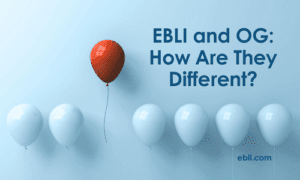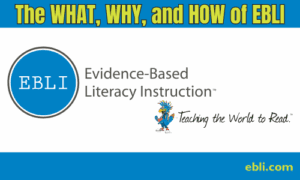Anytime is a fantastic time to take advantage of read alouds! In this blog, I’ll share some ways for both teachers and parents to do this along with touching on how to enhance your read alouds whether reading to one child or an entire classroom.
INCREASING VOCABULARY – ENHANCED READ ALOUDS
There are countless benefits that result from listening to a story read out loud, especially if it is a book that is beyond the level that the listeners could easily read independently. In a classroom, every single student benefits! Along with hearing the inflection of the reading and experiencing exposure to extended periods of a story, students are exposed to new vocabulary, gain background knowledge about new topics, and improve comprehension if the reader stops to share what they think might happen next, how they personally relate to the story, or something surprising discovered through the text. If the read aloud is done in person or live online, there is ample opportunity to stop intermittently and have short discussions with the students about what is transpiring. If it is a video recording, the reader would share their own thinking and questions every so often along the way.
There really is nothing quite like a read aloud! The listener has the opportunity to immerse themselves into a story without having to use their brain power to decipher the words on the page. This is beneficial for everyone but is especially important for emerging and struggling readers who are in the process of becoming accurate, fluent readers but are not quite there yet. Read alouds provide a transitional step for these students who would not be able to experience sustained accurate, automatic reading independently while understanding what they have read. It is like a preview of coming attractions – a motivation to become proficient readers so they can experience the joy of reading when they are on their own too. Having the opportunity to be engrossed in a story while seeing as well as hearing the reader is especially delicious!
When schools were shut down in the spring of 2020, we offered read alouds to students of all grade levels from around the world. The free recordings, linked in the next sentence, remain available on the EBLI website. The younger students were treated to Laura Ingalls Wilder’s Little House in the Big Woods and the older students listened to Reaching for the Moon: The Autobiography of NASA Mathematician Katherine Woods. Though I am an excellent reader, I made sure my schedule was free to listen to each of the sessions of the autobiography as it was riveting and such fun to listen to them being read by Hannah from our EBLI team.
Along with reading the story, she provided some brief instruction on unusual vocabulary words from the chapter(s) that was going to be read. She also talked about some interesting phonics components of the words such as the ‘t’ representing the sound /ch/ in words such as natural and virtual. Prefixes, suffixes, and other word parts or morphology were also touched upon. For example, in mathematician, the ‘cian’ suffix is pertaining to a person. You can even challenge the children to find other words with the same prefix, suffix, or root word to further solidify and enhance the information shared. So much additional instruction can be embedded into a read aloud!
Teachers and parents alike are often concerned with ‘the summer slide’ or regression of reading ability. On top of that, there is the additional concern of ‘Covid slide’. Read alouds are a perfect way to help rectify this situation. Teachers, parents, and students are now adept at using online platforms for video thanks to Covid. It is a great idea to take advantage of this for summer learning via read alouds! Teachers, you could video tape yourself reading a novel , a few chapters at a time, and share it with your students and their parents before they leave school (or finish virtual school) for the summer or to send to them before they return in the fall. What better way to introduce them to their new teacher and get to know them a bit before school starts?!
While you are reading, you do want to stop and ask genuine questions about what you are wondering (I wonder if Jack and Annie will get trapped by that lion- what do you think?) but be sure and keep it simple and quick. The goal of this experience is to immerse the children into a connected, extended story or topic and expose them to expanded vocabulary and information. Also, you do not want to give assignments or make the experience seem like school work. You could invite them to do enticing extensions if they are interested though. Students could write to you about their thoughts about the chapter(s) if they want or go on a scavenger hunt to find words with a pattern you have pointed out to them or tell their parent or someone else about what they listened to and learned. Often, when students are engrossed in the story, they will do these things naturally! The key is to keep the experience enjoyable, light, and authentic.
This process can also be done with informational text. In the online Level 2 EBLI Lessons that I taught to very large groups of K-3 students during Covid, I included background knowledge on topics about animals and places as well as explicit instruction in deciphering the code that went along with the articles read. We also looked at the globe to see where the animals lived or the state or country was located. The students chose the specifics and we learned about narwhals, koalas, seahorses, ancient Egypt, and Ireland. It was such fun and so educational for everyone, including ME. Did you know dolphins only sleep on one half of their body at a time? That was one of the many things I learned! I provided additional links so the children could explore each topic further with their parents. There were no assignments, just learning more about a topic they were already enthralled with if they chose to do so.
Parents, it would be great to make it a daily habit to read aloud to your children. Explore books together. If you find a series to get into, it is especially fun! This was something that all 3 of my girls truly loved. Even though there was a 5 year span between them, I read them all the same book or series. We read the Harry Potter books and Kelly, my youngest, became obsessed with them. Once she was able to read herself, she read the entire series through again – many, many times!
Here is a link to a list of books, many of which are series that you can read with your children or students. This is not a comprehensive list but it is a great start! These are for all grade levels and the list was made with the intention of books for students to read independently. However, for your purposes as a parent or teacher, you want to choose a book that is well above their current grade and especially above their independent reading levels. Here is a list of almost 100 Newberry Honor books that are great to read with children and here is a page with several other book options.
I recently shared this quote on the EBLI Facebook page: “Reading gives us somewhere to go when we have to stay where we are.” So, if you are staying where you are, or even if you aren’t, be there with your children or students! Offer them the opportunity to explore places and things they would not have access to from a book unless it was read to them. This process will expand every learner including you, will spark interesting conversation, and is a way to connect and grow together. Maybe you could even get a loved one to read a book out loud to you. This is how my children’s 87 year old grandmother (retired Vice President of Western Michigan University) and her beloved (he is 91) have spent much of the past year sequestered due to COVID. They weren’t able to physically go anywhere but they sure traveled to many spectacular places together through shared books!
So, find a good book and head to the hammock, lounge chair, couch, or video camera and travel somewhere exciting with your child(ren) or students.
Happy reading and listening!





